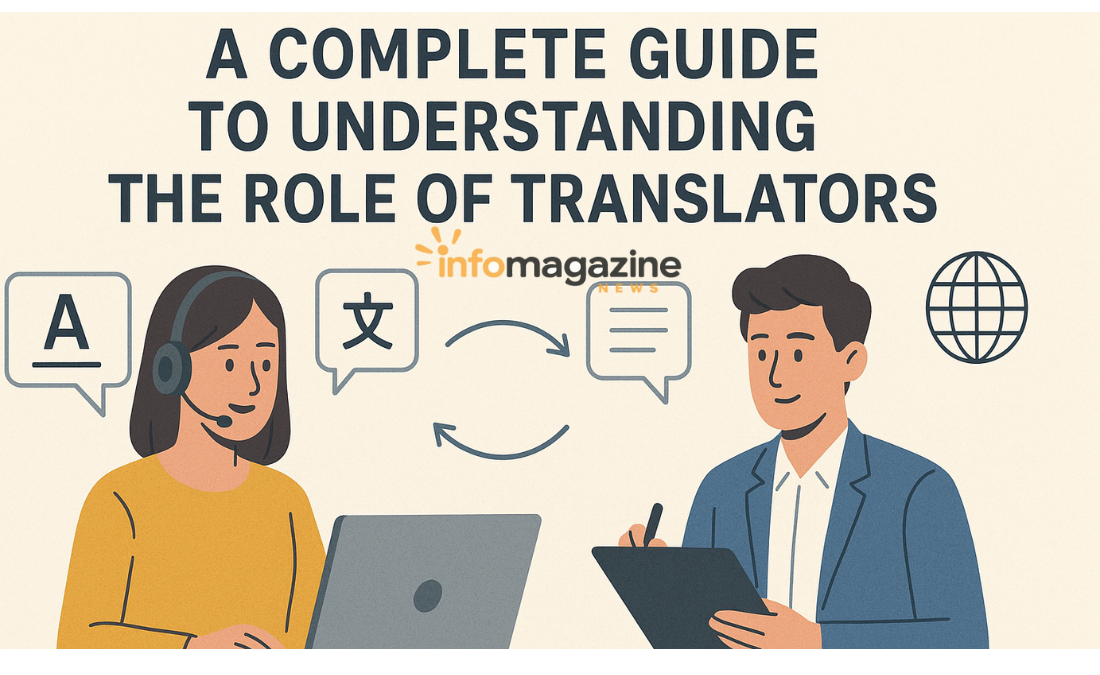Language has always been a bridge between cultures, and in today’s globalized world, this bridge is more important than ever. The word преводч (which translates to translator in English) represents one of the most essential professions in communication, international relations, business, and culture. A преводч does much more than simply convert words from one language to another; they interpret meaning, preserve context, and enable understanding between people from different linguistic backgrounds.
In this article, we will explore the importance of the преводч, the skills required, the challenges faced, and the many fields where translators play a vital role.
What Does преводч Mean?
The word преводч originates from the Bulgarian language and literally means translator. A преводч is responsible for converting written or spoken content from one language into another while maintaining accuracy, tone, and cultural relevance.
Unlike automated translation tools, which often produce word-for-word results, a professional преводч understands nuances, idioms, and cultural references. This makes their work indispensable for literature, law, business, healthcare, and international diplomacy.
The Importance of a преводч in Global Communication
In the 21st century, the world is interconnected. Businesses expand across borders, governments cooperate through treaties, and individuals migrate, study, or work abroad. Without the role of a преводч, much of this interaction would not be possible.
- Business: International contracts, product manuals, and marketing campaigns all require translation. A преводч ensures messages are not just understood, but also culturally appropriate.
- Diplomacy: In political summits or negotiations, accuracy is critical. A преводч guarantees that leaders from different nations can communicate effectively.
- Healthcare: Medical translations help doctors and patients communicate across language barriers. This could be life-saving.
- Education and Research: Translators make knowledge accessible across the globe by translating books, studies, and scientific papers.
Thus, the role of the преводч goes far beyond language—it shapes cooperation, growth, and understanding worldwide.
Skills Every преводч Must Have
A successful преводч requires more than fluency in two languages. The following skills are essential:
- Language Mastery: Deep knowledge of both source and target languages, including grammar, vocabulary, and idiomatic expressions.
- Cultural Awareness: Understanding cultural nuances is crucial. A literal translation may not convey the intended meaning.
- Attention to Detail: Small mistakes can lead to misinterpretations, especially in legal or medical translations.
- Research Skills: Many topics require background research to ensure accurate terminology.
- Adaptability: A преводч must switch between formal, informal, technical, and creative styles depending on the context.
These qualities distinguish a professional преводч from machine translation or amateur attempts.

Types of преводч: Different Fields of Translation
Not all translators work in the same area. The role of a преводч can vary widely depending on specialization:
- Literary Translators – Work on novels, poetry, and plays, capturing not just meaning but also artistic expression.
- Technical Translators – Translate manuals, scientific texts, or engineering documents where accuracy is crucial.
- Legal Translators – Handle contracts, court documents, and legislation. A small error can change the meaning of a law.
- Medical Translators – Work on patient records, clinical studies, and pharmaceutical information.
- Business Translators – Translate corporate documents, presentations, and international marketing campaigns.
- Interpreters (Oral Translators) – Though slightly different, some use the term преводч for interpreters as well. They provide real-time translation in conferences or meetings.
Each type of преводч requires specialized knowledge and training to ensure accuracy and reliability.
Challenges Faced by a преводч
The work of a преводч may seem straightforward, but it comes with unique challenges:
- Untranslatable Words: Some terms in one language do not have a direct equivalent in another.
- Idioms and Slang: Expressions that make sense in one culture may confuse another.
- Time Pressure: Deadlines in legal or business translation can be extremely tight.
- Maintaining Tone: Especially in literature, the translator must preserve the author’s style.
- Technological Competition: With AI and machine translation, human translators face pressure, but their expertise in nuance and culture remains irreplaceable.
Despite these challenges, a skilled преводч continues to prove their value across industries.
The Role of Technology in the Work of a преводч
Modern technology has changed the way translators work. Tools like Google Translate, DeepL, and AI-based platforms have become widely used. While they provide quick results, they cannot replace a human преводч.
Many translators now use Computer-Assisted Translation (CAT) tools, which help manage terminology databases and ensure consistency. However, final editing still requires human intelligence to preserve meaning and accuracy.
The future likely involves a combination of technology and human expertise, with the преводч remaining at the center of global communication.
Why Society Needs a преводч More Than Ever
In an era where globalization and migration are shaping societies, the demand for a преводч continues to grow. Misunderstandings due to poor translation can cause legal disputes, failed business deals, or even diplomatic conflicts.
Furthermore, literature, films, and cultural content require professional translation to be shared worldwide. Without translators, much of human creativity would remain locked in one language, inaccessible to others.
Thus, the преводч is not only a professional but also a cultural ambassador who builds bridges between people and nations.
How to Become a преводч
For anyone aspiring to become a преводч, the journey involves:
- Language Studies: Formal education in linguistics or translation studies.
- Specialization: Choosing a field like law, medicine, or literature.
- Practice: Regularly translating texts to improve speed and accuracy.
- Certification: Many countries offer certification programs to validate skills.
- Experience: Building a portfolio and working with clients or agencies.
A career as a преводч can be rewarding, especially for those passionate about languages and cross-cultural communication.
Conclusion: The Everlasting Value of a преводч
The role of the преводч is more important today than at any time in history. As societies grow increasingly interconnected, the need for accurate, culturally sensitive, and professional translation continues to rise.
While technology has introduced new tools, it cannot replace the human touch of a преводч, who brings not just words but also meaning, context, and empathy across languages. From diplomacy to healthcare, from literature to business, translators are the unseen bridge that connects humanity.




